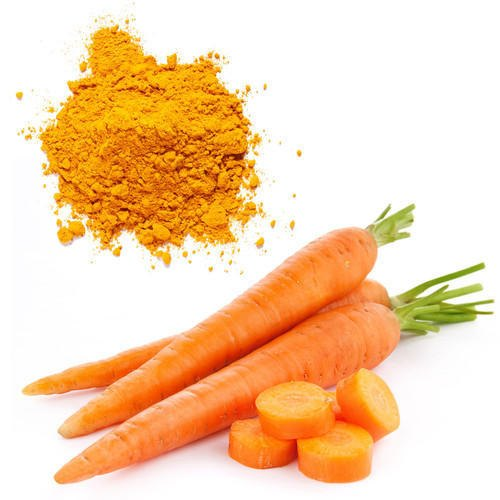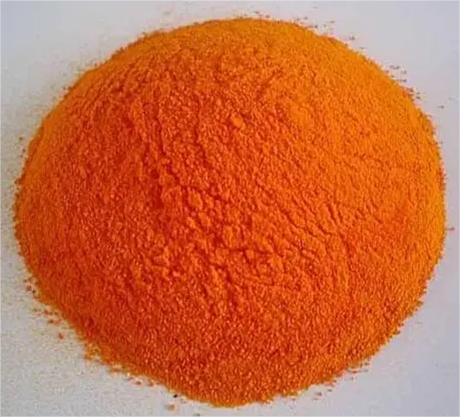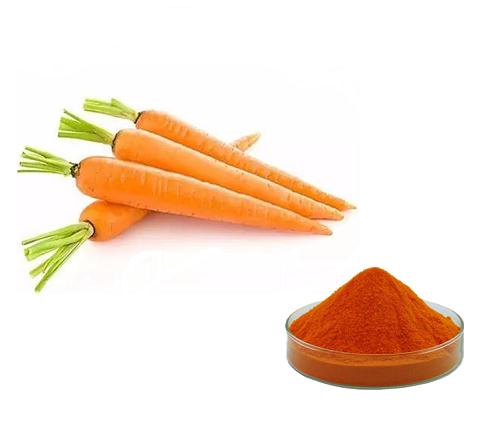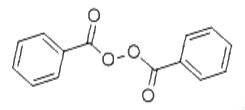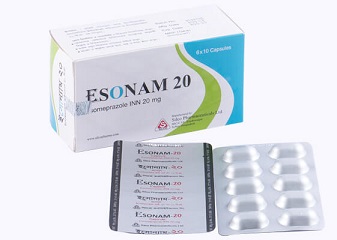Benefits and Side Effects of Beta-Carotene
β-Carotene is an organic, strongly colored red-orange pigment abundant in plants and fruits. The name β-Carotene comes from the Greek "beta" and Latin "carota" (carrot). It is a kind of yellow/orange pigment that gives vegetables and fruits their rich colors. H. Wachenroder crystallized beta carotene from carrot roots in 1831, and came up with the name "carotene"[1]. The structure was deduced by Karrer et al. in 1930[2]. In nature, β-carotene is a precursor (inactive form) to vitamin A via the action of beta-carotene 15, 15'-monooxygenase [3].

Benefits
Beta-carotene is used to decrease asthma symptoms caused by exercise; to prevent certain cancers, heart disease, cataracts, and age related macular degeneration (AMD); and to treat AIDS, alcoholism, Alzheimer’s disease, depression, epilepsy, headache, heartburn, high blood pressure, infertility, Parkinson’s disease, rheumatoid arthritis, schizophrenia, and skin disorders including psoriasis and vitiligo. Beta-carotene is also in used in malnourished (underfed) women to reduce the chance of death and night blindness during pregnancy, as well as diarrhea and fever after giving birth. Some people who sunburn easily, including those with an inherited disease called erythropoietic protoporphyria (EPP), use beta-carotene to reduce the risk of sunburn [4].

Side effects
Excess β-carotene is predominantly stored in the fat tissues of the body. The most common side effect of excessive β-carotene consumption is carotenodermia, a physically harmless condition that presents as a conspicuous orange skin tint arising from deposition of the carotenoid in the outermost layer of the epidermis. Adults' fat stores are often yellow from accumulated carotenoids, including β-carotene, while infants' fat stores are white. Carotenodermia is quickly reversible upon cessation of excessive intakes [5].
Interactions
β-Carotene can interact with medication used for lowering cholesterol. Taking them together can lower the effectiveness of these medications and is considered only a moderate interaction. β-Carotene should not be taken with orlistat, a weight-loss medication, as orlistat can reduce the absorption of β-carotene by as much as 30%. Bile acid sequestrants and proton-pump inhibitors can also decrease absorption of β-carotene. Consuming alcohol with β-carotene can decrease its ability to convert to retinol and could possibly result in hepatotoxicity [5].
Reference
[1] https://www.medicalnewstoday.com/articles/252758.php
[2] Karrer P, Helfenstein A, Wehrli H (1930). "Pflanzenfarbstoffe XXV. Über die Konstitution des Lycopins und Carotins". Helvetica Chimica Acta. 13 (5): 1084–1099.
[3] Van Arnum, Susan D. (1998), "Vitamin A", Kirk-Othmer Encyclopedia of Chemical Technology, New York: John Wiley, pp. 99–107,
[4] https://www.webmd.com/vitamins/ai/ingredientmono-999/beta-carotene
[5] beta-Carotene – Wikipedia
You may like
Related articles And Qustion
See also
Lastest Price from β-Carotene manufacturers
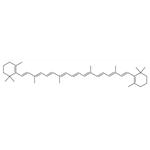
US $1.00/KG2025-08-30
- CAS:
- 7235-40-7
- Min. Order:
- 1KG
- Purity:
- 96%
- Supply Ability:
- 20T

US $1.00/KG2025-06-26
- CAS:
- 7235-40-7
- Min. Order:
- 1KG
- Purity:
- 99%
- Supply Ability:
- 10 mt

